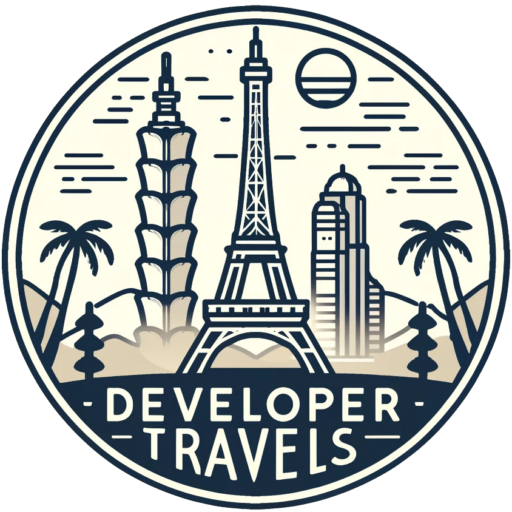Practical Switzerland Travel Guide: Language, Currency & Tips
Switzerland feels like several countries in one. From the snow-capped Alps to vibrant cities like Zurich and Geneva, each region has its own culture, traditions, and even language.
For travelers, this diversity is part of the charm—but it also means a bit of preparation will make your trip much smoother.
Whether you’re asking what language do they speak in Switzerland, what money to bring, or how to make local payments, this guide has the essentials you need.
Switzerland at a Glance: A Multicultural & Multilingual Nation
Bordered by France, Germany, Italy, Austria, and Liechtenstein, Switzerland sits at the heart of Europe.
Its location has created a uniquely multicultural identity. Four official languages are spoken, and traditions vary widely from canton to canton.
With a Switzerland population of about 8.8 million, it supports one of Europe’s most diverse linguistic and cultural landscapes. This variety is what makes traveling here so fascinating—no two cities or valleys feel alike.
What Language Do They Speak in Switzerland?
Switzerland’s language diversity is central to its identity. The country has four official languages, each tied to a specific region:
- German: Spoken by about 63% of the population, mainly in central and northern areas including Zurich, Lucerne, and Bern. The local dialect, “Swiss German,” differs from standard German but is widely understood.
- French: Used by 23% of the population, mostly in western Switzerland—Geneva, Lausanne, and Montreux are French-speaking.
- Italian: Spoken by 8%, primarily in Ticino and parts of Graubünden.
- Romansh: Less than 1% speak this minority language, found in some Alpine valleys of Graubünden.
Travelers will encounter different languages depending on the region, but English is common in tourist areas, hotels, and transport hubs. Still, using a few local phrases is always appreciated.
Switzerland Currency: Swiss Franc vs Euro
The official Switzerland currency is the Swiss Franc (CHF).
Although Switzerland is not part of the EU, some shops and hotels accept euros, especially near borders and in tourist areas. However, rates are usually less favorable and change is given in francs.
Credit cards are widely accepted, but keep cash for mountain huts, rural villages, and small cafés. ATMs are plentiful, and contactless payments are common across the country.
Switzerland Country Code
To stay connected, note that the Switzerland country code is +41. When dialing from abroad, enter your international access code, then +41, followed by the local number (without the leading zero).
Practical Tips for Communication & Payments
A few habits will make traveling in Switzerland even easier:
- Mobile coverage is excellent, though remote alpine areas may have limited signal. Consider a Swiss SIM card or eSIM.
- Use credit cards or mobile wallets (Apple Pay, Google Pay), but always carry some CHF for local transactions.
- Greet people in the local language: “Grüezi” (German), “Bonjour” (French), “Buongiorno” (Italian).
Useful Apps, Phrases & Cultural Etiquette
Efficiency and politeness are highly valued in Swiss culture. A little preparation goes a long way:
- Apps:
- SBB Mobile for trains
- Google Translate or Deepl for language help
- Maps.me or SwitzerlandMobility for hiking and biking routes
- Phrases:
- German: “Danke” (Thank you)
- French: “Merci” (Thank you)
- Italian: “Grazie” (Thank you)
- Etiquette:
- Be punctual—time is taken seriously.
- Keep voices low on public transport.
- Always validate train tickets or use digital passes.
Final Thoughts: Preparing for Your Swiss Journey
From its mix of languages to the use of the Swiss Franc, knowing a few basics makes traveling in Switzerland easier and more enjoyable.
Being aware of what language do they speak in Switzerland, which Switzerland currency to use, and the Switzerland country code helps you stay prepared.
Add local etiquette and a few handy apps, and you’ll feel at home in one of Europe’s most organized yet culturally diverse countries.
Whether you’re exploring lakeside Geneva, hiking the Switzerland Alps, or wandering Zurich’s Old Town, these tips ensure a stress-free adventure.
Frequently Asked Questions
Q: What language do they speak in Switzerland?
German, French, Italian, and Romansh are the four official languages. English is also common in tourist areas.
Q: What currency is used in Switzerland?
The Swiss Franc (CHF). Some places accept euros, but it’s best to use francs to avoid poor exchange rates.
Q: Does Switzerland accept the euro?
Yes, in tourist areas and border regions. However, prices are often rounded up and change is given in francs.
Q: What is the Switzerland country code?
+41. Drop the leading zero of the local number when dialing internationally.
Q: How many people live in Switzerland?
About 8.8 million, with most in cities like Zurich, Geneva, Basel, and Bern.
Q: Is Switzerland expensive to visit?
Yes, but costs can be reduced with public transport passes, hostels, supermarket meals, and free activities like hiking.
Q: Do I need cash in Switzerland, or can I use cards?
Both work. Cards and mobile payments are widely accepted, but carry CHF for small shops and rural areas.
Q: What apps should I download for traveling in Switzerland?
SBB Mobile, SwitzerlandMobility, and Google Translate are the most useful
Related Articles:

